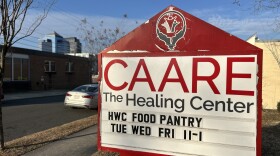Toyota says it's investing in Ionna, teaming with seven other automakers to support the company's implementation of its charging network for battery electric vehicles across North America.
The investment announced Wednesday gives Toyota and Lexus customers access to the public network of DC fast chargers Ionna will start deploying later this year.
Toyota currently has two mass-market battery EVs in the U.S. and Canada. They are the Toyota bZ4X and the Lexus RZ. The company is looking to offer 30 battery EV models worldwide across its Toyota and Lexus brands and make up to 3.5 million battery EVs annually by 2030.
Ionna, based in Durham, North Carolina, plans to install at least 30,000 charge ports in North America by 2030. Stations will include both CCS and NACS connectors to support all battery EV drivers.
The majority of electric vehicles currently have one of two types of plug styles to connect to public fast-charging stations. The first is called the Combined Charging System, or CCS, and the second is the North American Charging Standard, or NACS, used by all Tesla vehicles. The White House is lending its support to an auto industry effort to standardize Tesla’s electric vehicle charging plugs for all EVs in the United States, part of a broad effort to stimulate their sales to help combat climate change.
Other automakers supporting Ionna include BMW, GM, Honda, Hyundai, Kia, Mercedes-Benz and Stellantis.






